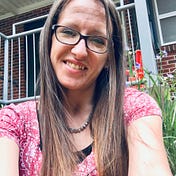Sarah Sharp

Sarah Sharp
Sarah Sharp writes about mental health and social injustice. You can find more of her work at soldiers-wives.com and www.sarahsharp.us.

Sarah Sharp writes about mental health and social injustice. You can find more of her work at soldiers-wives.com and www.sarahsharp.us.